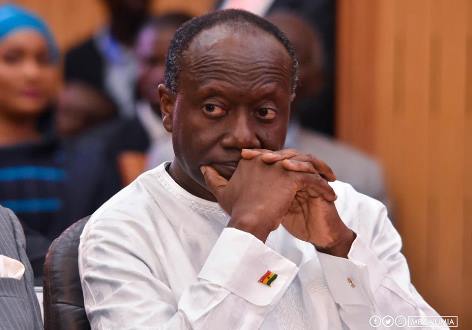
Why rural banks want to be exempted from Debt Exchange programme
Kwame Larweh
Business News
The Association of Rural Banks says members have invested in government bonds and if they are not exempted from the Domestic Debt Exchange Programme, it could hit them hard.
The association has therefore written to the Finance Minister, Ken Ofori-Atta requesting that rural banks be exempted from the debt exchange programme.
Rural banks have almost 40 percent of their total assets in government bonds amounting to GH¢753 million and this is considered very significant. Any haircut or unilateral rescheduling of coupon payments would, therefore, significantly affect the operations of rural banks, they noted in the letter sighted by Graphic Business.
“It will mostly affect liquidity and solvency position especially when these banks are already reeling under the current precarious economic situation facing the country,” the letter stated.
“The RCBs still have a significant proportion of their funds amounting to GH¢460 million locked up with various fund management companies after the completion of the financial sector reforms,” the letter added.
“All efforts to get the Securities and Exchange Commission (SEC) and other regulators to intervene to get the funds released to RCBs have so far not yielded any positive results,” it continued.
DDEP modifications
On Saturday December 21, 2022, the government modified its GH¢137.3 billion domestic bond exchange programme to include individuals.
The debt exchange programme is among the efforts the government is making to restructure the national debt.
The government took the decision to restructure the domestic debt step to secure approval from the management and executive board of the International Monetary Fund (IMF) for a US$3 billion loan-support programme to address Ghana’s economic crisis.
A press release issued by the Ministry of Finance said that, in addition to extensions previously set out, the government was “expanding the type of investors that can participate in the exchange to now include individual investors”.
Other modifications to the debt exchange programme include the setting of a non-binding target minimum level of overall participation of 80% of the aggregate principal amount outstanding of eligible bonds.
The ministry also said it is “offering accrued and unpaid interest on eligible bonds, and a cash tender fee payment to holders of eligible bonds maturing in 2023”.
There would also be eight new instruments to the composition of the new bonds, making a total of 12 new bonds, one maturing each year starting January 2027 and ending January 2038.
The ministry said the modifications would be set out in full detail in an Amended and restated exchange memorandum, expected to be published in the week of December, 26, 2022.
“Conforming changes (including adding and modifying defined terms) in respect of the above amendments and modifications to cure ambiguity, omission, defect, error or inconsistency may be included in the Amended and Restated Exchange Memorandum.” the ministry said.

